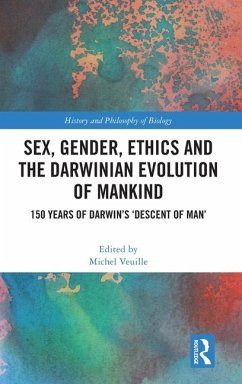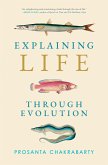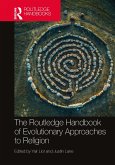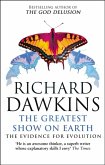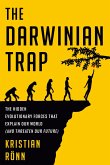Sex, Gender, Ethics and the Darwinian Evolution of Mankind examines the impact of Darwin's Descent of Man on contemporary biology and the humanities.
Its publication in 1871 was a founding event in anthropology. Its content was primarily concerned with the development of sexual life, social life and intellectual life, not only as outcomes of evolution, but as components that have actively intermixed over time with the evolutionary mechanism of natural selection. The stamp of Darwinism on modern thought is still very important and brings novelties to academic studies. Several fields influenced by Darwinian anthropology developed in recent decades, including evolutionary ethics, the evolution of sociality and sexual communication in animal and plant species. Sociobiology and evolutionary psychology are topics that draw heavily on Darwin's Descent of Man. The understanding of Darwin's thought has also progressed greatly in recent decades, following the systematic study ofDarwin's correspondence and notebooks, leading to a reassessment of the development of his thought on humans, social groups and heredity, and how they come together in his theory of evolution.
The book combines a historical perspective on Darwin's achievement and his legacy. It will be of interest to students and scholars in a variety of fields, from experimental biology to the social and historical sciences.
Its publication in 1871 was a founding event in anthropology. Its content was primarily concerned with the development of sexual life, social life and intellectual life, not only as outcomes of evolution, but as components that have actively intermixed over time with the evolutionary mechanism of natural selection. The stamp of Darwinism on modern thought is still very important and brings novelties to academic studies. Several fields influenced by Darwinian anthropology developed in recent decades, including evolutionary ethics, the evolution of sociality and sexual communication in animal and plant species. Sociobiology and evolutionary psychology are topics that draw heavily on Darwin's Descent of Man. The understanding of Darwin's thought has also progressed greatly in recent decades, following the systematic study ofDarwin's correspondence and notebooks, leading to a reassessment of the development of his thought on humans, social groups and heredity, and how they come together in his theory of evolution.
The book combines a historical perspective on Darwin's achievement and his legacy. It will be of interest to students and scholars in a variety of fields, from experimental biology to the social and historical sciences.

